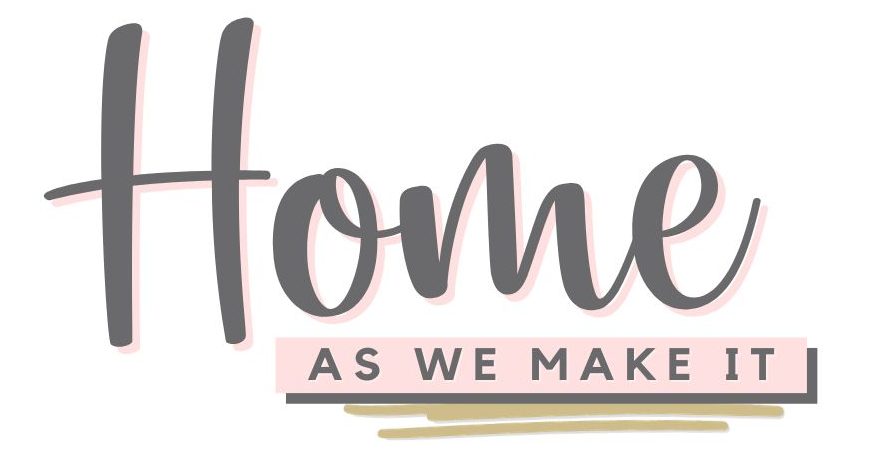Navigating Postpartum Recovery: A Guide For New Mothers
Your journey from pregnancy to childbirth may have been filled with excitement, anticipation, and even anxiety. Now that your little one has arrived, it’s time to focus on postpartum recovery.
This period can be both physically and emotionally challenging for new mothers, but with the right guidance and support, you can navigate this phase like a pro.
Note: This post may contain affiliate links, which means if you buy from my link I might make a small commission. This does not affect the price you pay. See the full affiliate disclosure here.
In this article, we will provide you with a comprehensive guide to help you navigate postpartum recovery. We understand that every woman’s experience is unique, so our aim is to equip you with essential information and resources that will help you take care of yourself as you adjust to motherhood.
From caring for your physical health to adjusting to parenthood and seeking professional help when needed – we’ve got everything covered.
So sit back, relax, and let’s get started on this journey together!

Take Care of Your Physical Health
You need to prioritize your physical health now more than ever. Take care of yourself, Mama, so you can take care of your little one.
After giving birth, it’s important to ease back into an exercise routine that’s safe and appropriate for your postpartum body. Walking or light yoga can be great options to start with and gradually increase in intensity as you feel comfortable.
Along with exercise, a nutrition plan is crucial for your recovery. Your body needs the right fuel to heal and provide nourishment for breastfeeding if that’s what you choose to do. Focus on eating whole foods such as lean proteins, fruits and vegetables, and healthy fats like avocado or nuts.
Don’t forget to drink plenty of water throughout the day to stay hydrated. Remember that taking care of yourself isn’t selfish but necessary in order for you to be able to care for your little one with all the love and attention they deserve!
Caring for Your Mental Health
Taking care of your mental health after having a baby is just as important as taking care of your physical health. The first few months postpartum can be overwhelming, and it’s easy to put all your focus on the new addition to your family. However, neglecting your mental health can lead to burnout and make it harder for you to take care of both yourself and your baby.
One way to prioritize self-care practices is by making a daily routine that includes time for yourself. This could mean taking a relaxing bath, reading a book, or simply going for a walk alone.
Building a support system is also crucial in caring for your mental health. This means connecting with other mothers who may be going through similar experiences or relying on friends and family members who can provide emotional support when you need it the most.
Remember, asking for help does not make you weak; it makes you strong enough to acknowledge that you need support during this transition period.
Navigating Breastfeeding
As you breastfeed your baby, it’s important to be aware of the different positions and techniques that can make the experience more comfortable and effective for both you and your little one.
One technique is the cross-cradle hold, where you support your baby’s head with one hand and guide them towards your breast with the other. Another option is the football hold, which is great for mothers who have had a C-section as it keeps the weight of the baby off their stomach.
Experimenting with different positions can help avoid discomfort or pain during breastfeeding.
Breastfeeding challenges may arise, such as engorgement or sore nipples. To combat engorgement, apply warm compresses before feeding and cold compresses after feeding to reduce swelling. Sore nipples can be treated by applying lanolin cream or using nipple shields until they heal.
Remember to take breaks when needed and seek support from lactation consultants or a breastfeeding support group if necessary. With patience and persistence, navigating breastfeeding can become an enjoyable bonding experience between you and your baby.

Adjusting to Parenthood
It can be overwhelming to adjust to the new responsibilities and emotions that come with becoming a parent, but remember that it’s okay to ask for help and take things one day at a time.
It’s important to understand that during this time, there will likely be many expectations placed upon you – both by yourself and others. However, try not to put too much pressure on yourself to be the perfect parent right away. Every parent makes mistakes and goes through difficult times, so give yourself grace.
One way to make the adjustment easier is by involving your partner in the process. This can mean sharing responsibilities such as feeding or changing diapers, or simply having them listen while you vent about your feelings.
Communicate openly with each other about how you’re feeling and what kind of support you need from one another. Remember that parenthood is a journey that you are taking together, so lean on each other for support along the way.
Seeking Professional Help
If you’re struggling to adjust to parenthood, know that seeking professional help is a sign of strength, not weakness.
It’s important to seek medical help if you’re experiencing symptoms such as severe depression or anxiety, thoughts of self-harm or harm to your baby, or difficulty functioning in your daily life.
Finding a healthcare provider who understands and specializes in postpartum care can make all the difference. There are also resources available for postpartum support such as support groups and online communities.
Remember that taking care of yourself is essential for taking care of your little one.
When to Seek Medical Help
Knowing when to get medical attention is crucial for new moms as they navigate their post-baby bodies. It’s normal to experience some discomfort during the postpartum recovery period, but there are times when you should seek urgent medical attention. Here are three signs of complications that should prompt you to seek medical help:
- Heavy bleeding: If your bleeding becomes heavier than a regular period or doesn’t stop after two weeks, it could be a sign of a hemorrhage or infection.
- Severe pain: It’s common to experience some cramping and discomfort after giving birth, but if the pain is severe and doesn’t go away with medication or rest, it could indicate an underlying issue such as an infection or blood clot.
- Fever: A fever over 100.4°F (38°C) in the first few weeks after delivery can be a sign of an infection and requires immediate medical attention.
Remember, early intervention can prevent serious health problems from developing. Don’t hesitate to reach out for medical help if you notice any red flags or concerns about your postpartum health.

Finding a Healthcare Provider
You need to find a healthcare provider who understands your unique needs as a new mom and can provide the support and guidance you deserve. When choosing the right provider, consider their experience working with postpartum women, their availability for appointments and follow-up care, and their approach to treatment and communication.
It’s important to feel comfortable with your provider so that you can openly discuss any concerns or questions you may have. Insurance coverage and costs are also important factors to consider when finding a healthcare provider. Check with your insurance company to see what providers are covered under your plan, what services are included, and what out-of-pocket expenses you may incur.
Don’t be afraid to ask potential providers about their fees, payment options, and whether they offer sliding-scale or discounted rates for those without insurance. Remember that investing in your postpartum health is an investment in yourself and your family’s well-being.
Resources for Postpartum Support
Looking for additional support after having a baby? Check out these resources to find the help you need.
Online communities can be a great way to connect with other new mothers who are going through similar experiences.
There are various online platforms, such as Facebook groups or forums, that offer spaces for moms to share their struggles and seek advice from others who have been in their shoes. These communities can provide a sense of belonging and validate your feelings during this challenging time.
Another option is to join a postpartum support group. These groups are typically led by trained professionals, such as therapists or doulas, and provide a safe space for mothers to discuss their physical and emotional challenges.
Support groups offer an opportunity for participants to learn coping strategies, receive encouragement from others, and develop meaningful connections with fellow moms.
It’s important to remember that seeking support does not mean you’re weak or incapable of handling motherhood on your own – it means you’re taking care of yourself so that you can better care for your baby.
Conclusion
Congratulations on becoming a new mother! As you navigate the postpartum recovery period, it’s important to prioritize both your physical and mental health.
Remember to take care of yourself by getting enough rest, nourishing your body with healthy foods, and staying active as much as possible.
Additionally, don’t hesitate to seek professional help if you’re struggling with any aspect of the postpartum period. There are many resources available, from lactation consultants for breastfeeding support to therapists who can help with postpartum depression or anxiety.
Adjusting to parenthood can be challenging, but remember that you’re not alone. Reach out to friends and family for support, connect with other new mothers through local groups or online communities, and most importantly – give yourself grace during this time of transition.
You’re doing an amazing job!






